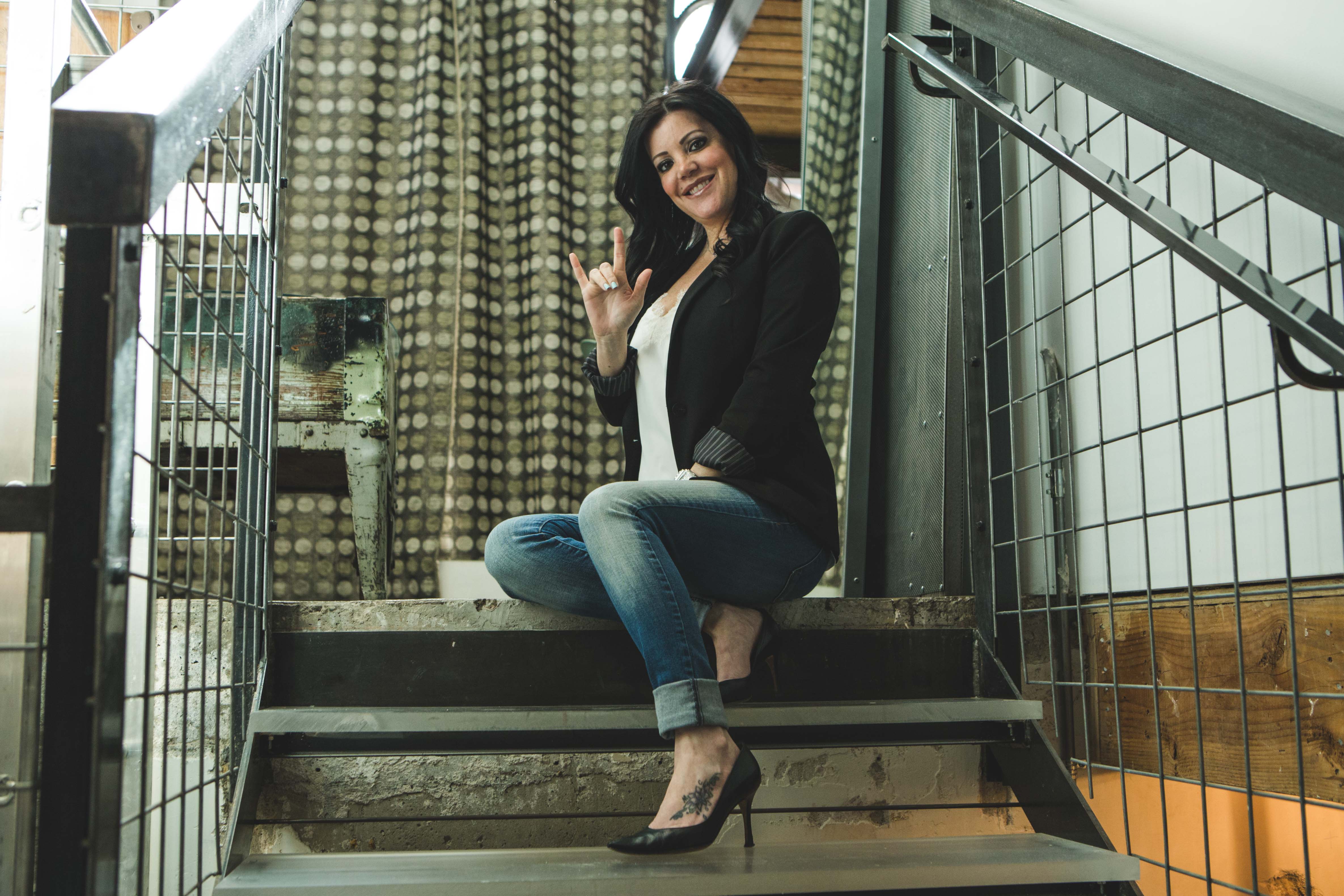The homeownership process is riddled with stress and anxiety for almost everyone. For many, the biggest transaction they will make in their entire lives is the purchase of a home. So what happens if you are deaf or hard of hearing and are trying to buy a house? Who is there to help you?
A Niche Field
Maria Gallucci is fluent in American Sign Language (ASL) and was first introduced to the real estate business at the tender age of 12 when her deaf parents bought a house in Loveland. One of six children, Gallucci is not hard of hearing, but was fluent enough in ASL and English to be able to translate the home buying process to her parents. Ever since her experience, she wanted to make a career in real estate.

After obtaining her real estate license for the first time when she was 18, Gallucci has since been doing real estate for 25 years and focuses on helping the deaf and hard of hearing. She now works as a managing broker with Savvy Realty and travels between Fort Collins and Colorado Springs to assist the 300,000 hard of hearing people who live on the Front Range. Schools like Colorado Springs’ Colorado School for the Deaf and Blind and the Rocky Mountain Deaf School in Denver make Colorado a popular spot for hard of hearing people. Gallucci estimates that within the whole Front Range, she is only one of three licensed realtors— that’s one agent to every 100,000 deaf Front Range citizens.
“I love being able to help [deaf] people and help them understand what they are doing and what they are buying. It really makes me feel complete— I love it,” Gallucci said.
The Problem
Before the 2008 economic crash, sufficient regulations regarding loans and mortgages did not exist— especially not regarding the wellbeing of disabled homeowners. Gallucci is no stranger to seeing deaf and hard of hearing people being taken advantage of. When she was younger, she witnessed her parents’ interest rates get raised due to a disability-driven lack of communication. Now, as an adult she sees it happen far too often.
“I have a client that had refinanced their mortgage and they didn’t understand the process because they didn’t have an interpreter. When I went to refinance them again, we found out they were actually in a balloon and an ARM (Adjustable Rate Mortgage) —they had absolutely no clue. The client thought they were in a 30-year fixed-rate mortgage when actually it was not. It was a big mess,” Gallucci said.
Balloon mortgages are more common in commercial real estate than in residential real estate. Because they never fully amortize over time, the final payment is sizably larger than the other payments. In an ARM, the loan offers a short introductory period with low, fixed interest rates, but after the introductory period is over the rates can increase. Luckily, Gallucci figured out the situation and was able to get the client on a better, more affordable track.
“I really wish the government would step in a little bit to help them more. I mean, they have the Down Payment Assistance program, but that isn’t really geared towards the disabled community or the deaf and hard of hearing which I think it should be,” Gallucci said.

The Solution
The biggest problem with the assistance programs that are in place is a lack of ASL interpretation. Financial aid programs require buyers to attend classes, watch videos and take tests before they can receive financial support, but it does not help when they cannot understand the material.
“Many of my clients are first-time home buyers, so many of them use CHFA (Colorado Housing and Finance Authority). I went online to see what my clients were looking at because they were confused. The [videos] had no closed-captions and no one on there was interpreting— a deaf buyer would have no idea what to do.”
“So what I did is I called CHFA and told them that what they were doing was not helping the deaf community at all. Without closed captions for them to read or interpreters, there’s no way they can pass these tests. So now CHFA has hired an interpreter to go into the classes with them, which has been a huge success,” Gallucci said. “CHFA does a lot of charity work and that’s why I thought it was neat that they listened to what I was suggesting about the classes and stuff. CHFA pays the interpreter too, so our clients don’t have to.”
Why Denver?
Many of the clients Gallucci works with are young, first time home buyers in the Denver area. Last year Gallucci did 41 transactions, of which 90 percent were for deaf or hard of hearing clients. This is a large Colorado community that needs more bilingual support. Through her real estate, finance and mortgage knowledge Gallucci plans to continue to support and advocate for the deaf and hard of hearing community that calls Colorado home.
Maria Gallucci can be contacted through email at maria@uptownmg.com.
All photography by Kyle Cooper (@KyleCoopah on Instagram).





